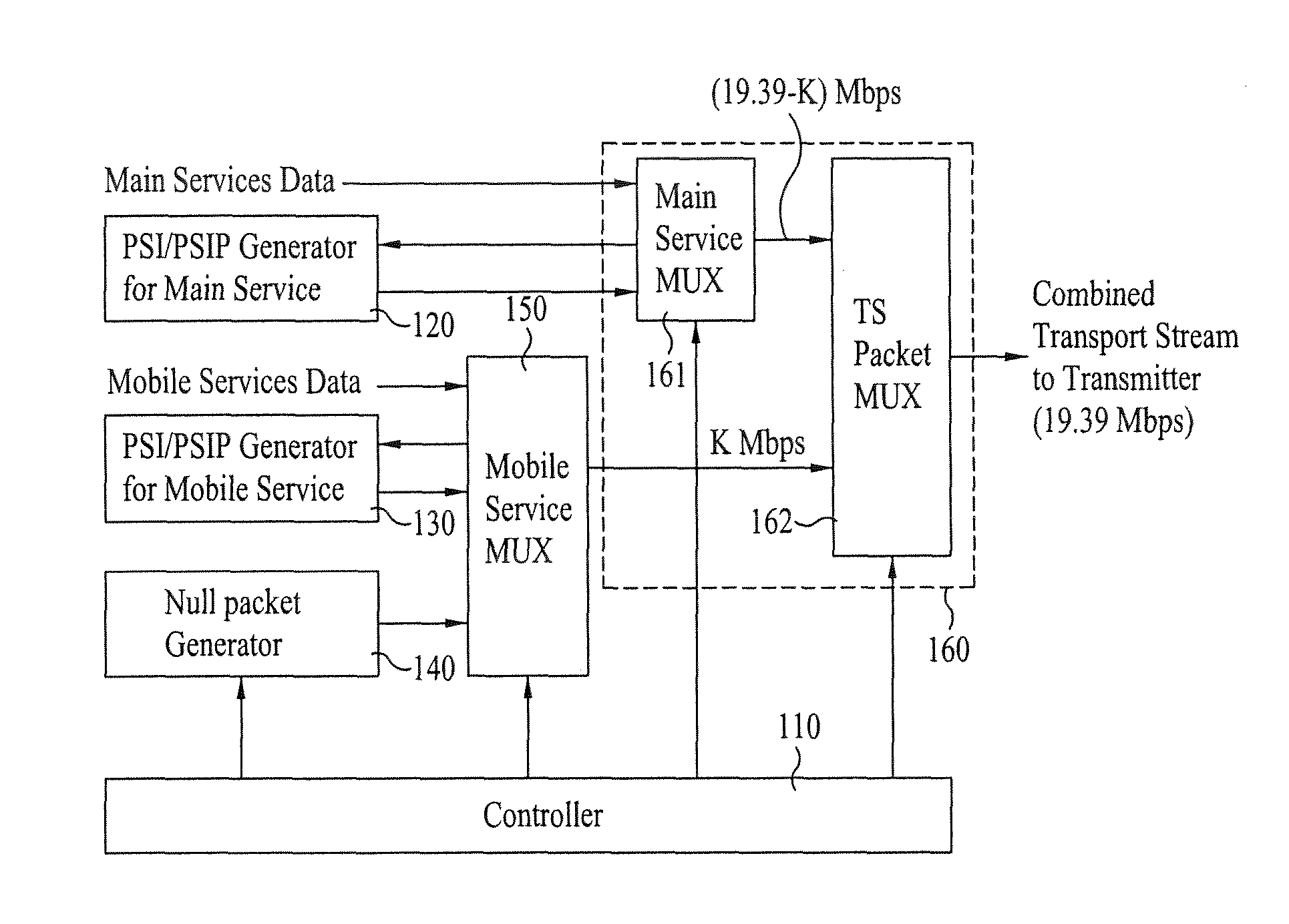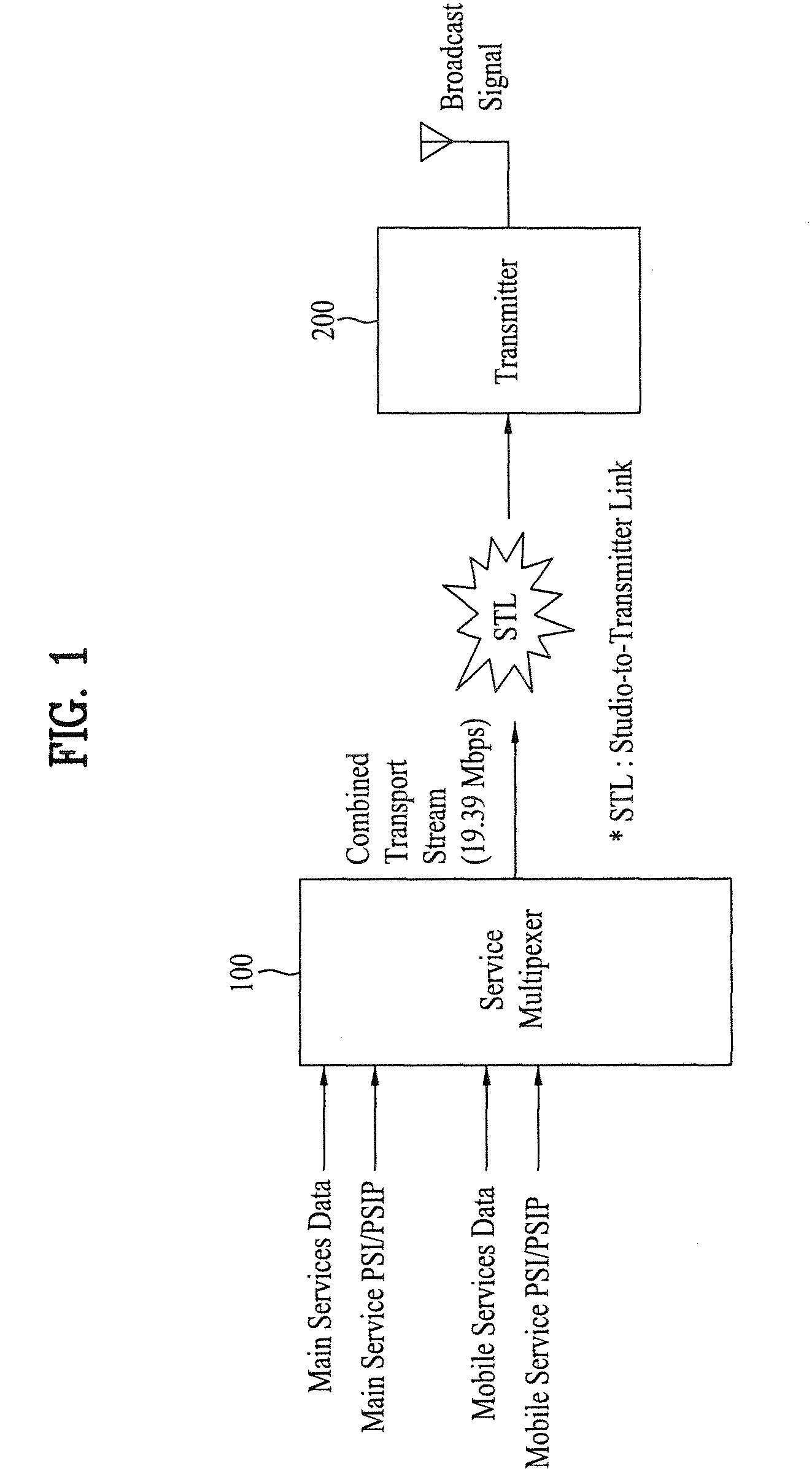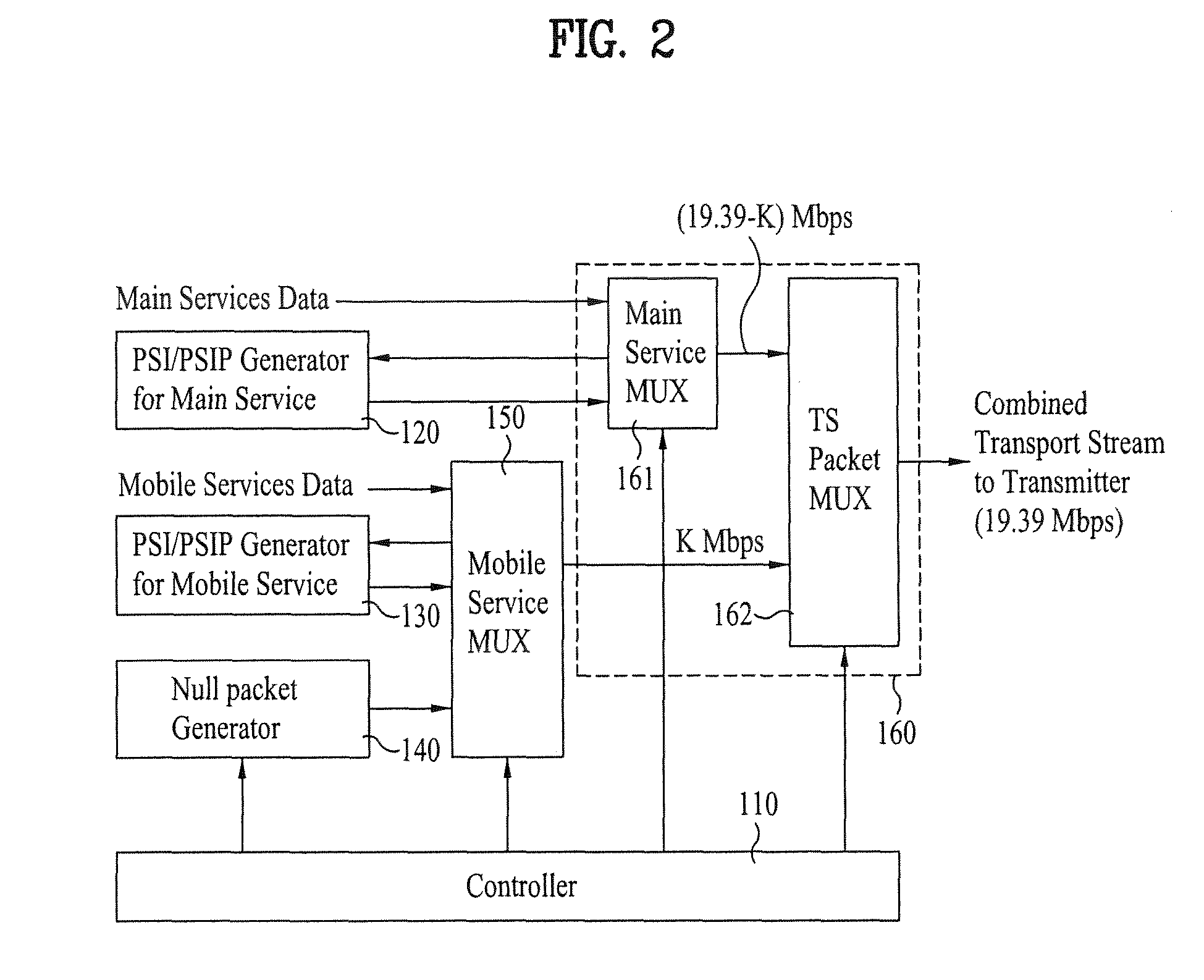Method of controlling and apparatus of receiving mobile service data
a mobile service data and control apparatus technology, applied in the direction of selective content distribution, wireless commuication services, amplitude demodulation, etc., can solve the problems of deteriorating reception performance and receiving system performance, and achieve the effect of strong resistance to noise and channel variation, and improving the reception performance of the mobile reception system
- Summary
- Abstract
- Description
- Claims
- Application Information
AI Technical Summary
Benefits of technology
Problems solved by technology
Method used
Image
Examples
first embodiment
[0189]FIG. 18 illustrates a schematic diagram of the group formatter 304 receiving the transmission parameter and inserting the received transmission parameter in region A of the data group according to the present invention. Herein, the group formatter 304 receives mobile service data from the block processor 303. Conversely, the transmission parameter is processed with at least one of a data randomizing process, a RS frame encoding process, and a block processing process, and may then be inputted to the group formatter 304. Alternatively, the transmission parameter may be directly inputted to the group formatter 304 without being processed with any of the above-mentioned processes. In addition, the transmission parameter may be provided from the service multiplexer 100. Alternatively, the transmission parameter may also be generated and provided from within the transmitter 200. The transmission parameter may also include information required by the receiving system in order to rec...
second embodiment
[0193]Meanwhile, when known data generated from the group formatter in accordance with a pre-decided rule are inserted in a corresponding region within the data group, a transmission parameter may be inserted in at least a portion of a region, where known data may be inserted, instead of the known data. For example, when a long known data sequence is inserted at the beginning of region A within the data group, a transmission parameter may be inserted in at least a portion of the beginning of region A instead of the known data. A portion of the known data sequence that is inserted in the remaining portion of region A, excluding the portion in which the transmission parameter is inserted, may be used to detect a starting point of the data group by the receiving system. Alternatively, another portion of region A may be used for channel equalization by the receiving system.
[0194]In addition, when the transmission parameter is inserted in the known data region instead of the actual known...
third embodiment
[0200]Meanwhile, the transmission parameter may also be inserted in the field synchronization segment region and then transmitted. FIG. 21 illustrates a block diagram showing the synchronization multiplexer being expanded in order to allow the transmission parameter to be inserted in the field synchronization segment region. Herein, a signaling multiplexer 261 is further included in the synchronization multiplexer 260. The transmission parameter of the general VSB method is configured of 2 fields. More specifically, each field is configured of one field synchronization segment and 312 data segments. Herein, the first 4 symbols of a data segment correspond to the segment synchronization portion, and the first data segment of each field corresponds to the field synchronization portion.
[0201]One field synchronization signal is configured to have the length of one data segment. The data segment synchronization pattern exists in the first 4 symbols, which are then followed by pseudo rand...
PUM
 Login to View More
Login to View More Abstract
Description
Claims
Application Information
 Login to View More
Login to View More - R&D
- Intellectual Property
- Life Sciences
- Materials
- Tech Scout
- Unparalleled Data Quality
- Higher Quality Content
- 60% Fewer Hallucinations
Browse by: Latest US Patents, China's latest patents, Technical Efficacy Thesaurus, Application Domain, Technology Topic, Popular Technical Reports.
© 2025 PatSnap. All rights reserved.Legal|Privacy policy|Modern Slavery Act Transparency Statement|Sitemap|About US| Contact US: help@patsnap.com



